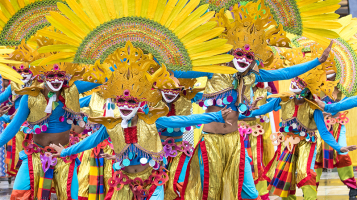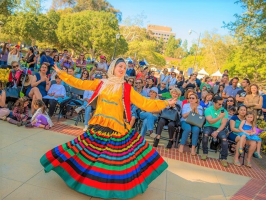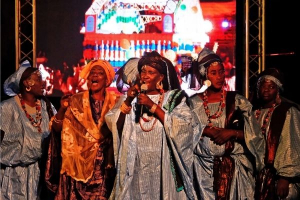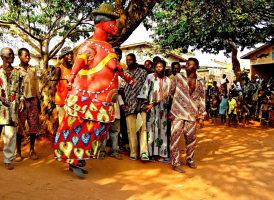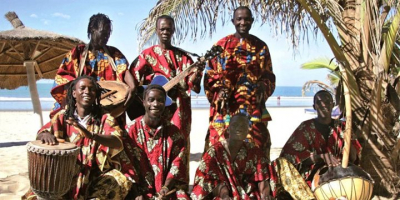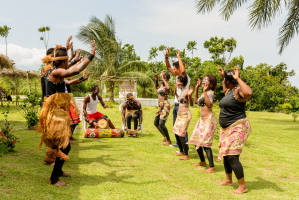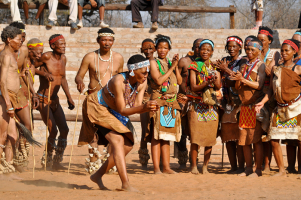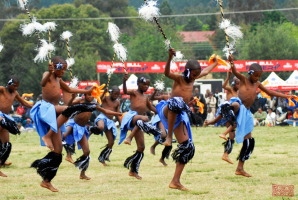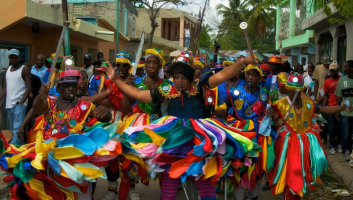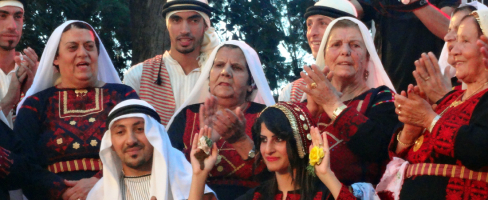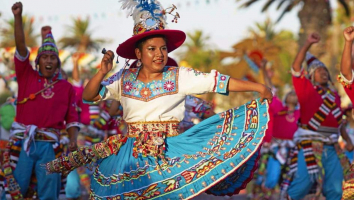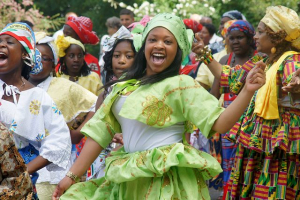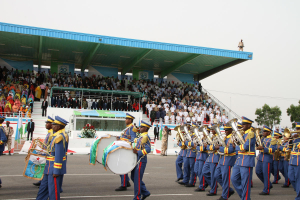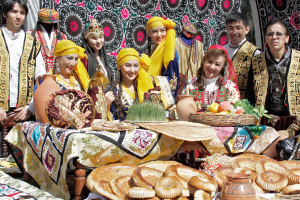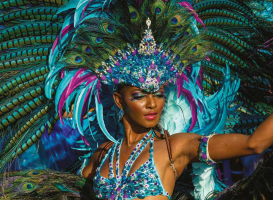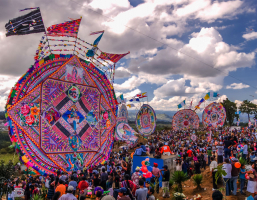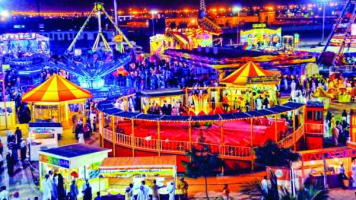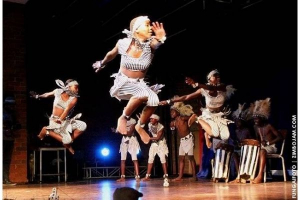Top 12 Most Famous Festivals in Ghana
Festivals are a big deal in Ghana and they attract people from all over the country as well as people from other parts of Africa and the rest of the world too. ... read more...Some of these festivals have been sustained through the ages and in contemporary times. They are held every year in the West African nation, spread all year around and some of them are simply mind-blowing. Every year, millions of Ghanaians eagerly await these popular festivals and crowds pour into the streets to celebrate when the time comes. The fact that there are so many festivals in Ghana is not quite surprising, especially because Ghanaians are known to be a very cultural set of people who understand the values of tradition and the need to uphold them. Let’s take a look at the most famous festivals in Ghana in the list below!
-
The word Homowo (Homo – hunger, wo – hoot) can mean “to hoot at hunger” in the Ga language. The tradition of Homowo started with a period of hunger leading to famine due to failure of the seasonal rains needed by crops in the Greater Accra Region, where the Ga people predominantly dwell. When the rains returned to normal, the Ga people celebrated by creating the Homowo festival, hence its name and meaning.
Homowo is greatly celebrated in all the towns in the Ga state with celebrations climaxing in Gamashie. The celebration begins with the planting of maize, which will be used in preparing the food for the festival named Kpokpoi or Kpekple. During this period, noise making is prohibited or banned since it is believed that it disturbs the gods. The meal is eaten with Palm Nut Soup and it is also sprinkled within the town. This is normally done by traditional leaders and family heads.
Celebration includes marching down roads and streets beating drums, chanting, face painting, singing and traditional dances. Even though the celebration of Homowo is a Ga tradition, many other ethnic groups are welcomed to also join in the celebration. The Homowo festival of the Ga tribe is believed to have a lineage from the Jewish tribe and its ancestral tradition of the Jewish Passover feast. The festival is a big deal and even though it is primarily an event for the Ga people, it attracts people from all over the country.
Where: Accra
When: May
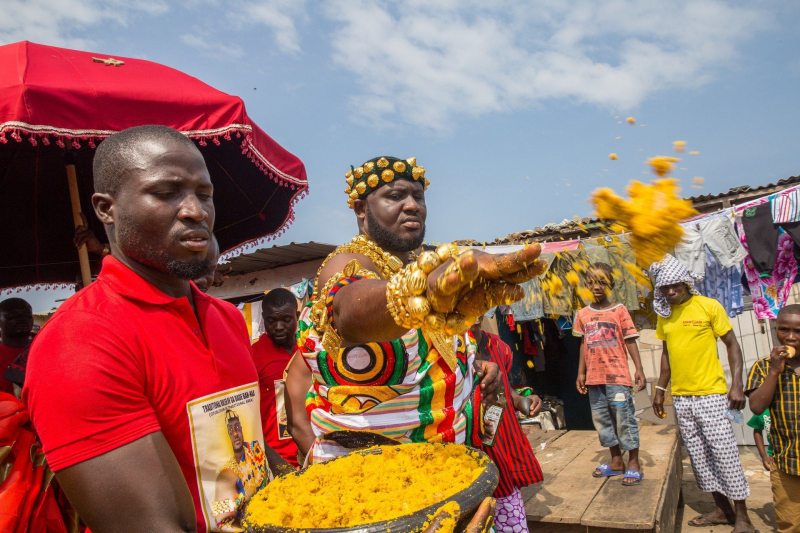
Photo: BreathList Video: CGTN Africa -
The Aboakyer Festival is a bushbuck hunting festival in Ghana that catches quite a lot of attention in the country every year. The popular festival is celebrated by the people of Efutu in Winneba in the Central Region of Ghana. The festival is held every year in order to commemorate the migration of the Simpafo people. (Simpafo is the traditional name given to the people of Winneba).
The festival is celebrated on the first Saturday in the month of May every year and continues throughout the ensuing weekend. The festival is a big deal in Ghana, especially for the people in the Central Region who prepare all year for the big event. It is noteworthy that the name Aboakyer actually translates to “hunting for game or animal” in the Fante language which is the dialect that is spoken by the people of the Central Region, including the Efutu people.
Where: Efutu-Winneba
When: May
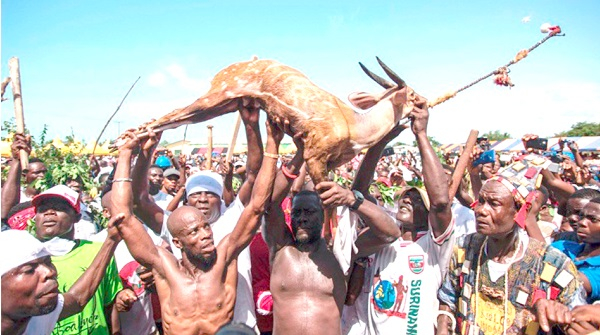
Photo: Graphic Online Video: Visit Ghana -
The Bakatue Festival is another popular event that is celebrated every year in Ghana. The festival is celebrated by the chiefs and people of Elmina in the Central Region of the country. The event usually turns the region into a beehive of activities and attracts people from other countries as well. The event is celebrated on the first Tuesday in the month of July every year.
For the record, the name Bakatue is a word from the Frante dialect which translates to “draining of a lagoon”. The festival is used to commemorate the beginning of the fishing season in Elmina. The grand event is also used for offering thanks and prayers to the gods of the Elmina people for a good fishing year.
Where: Elmina
When: July
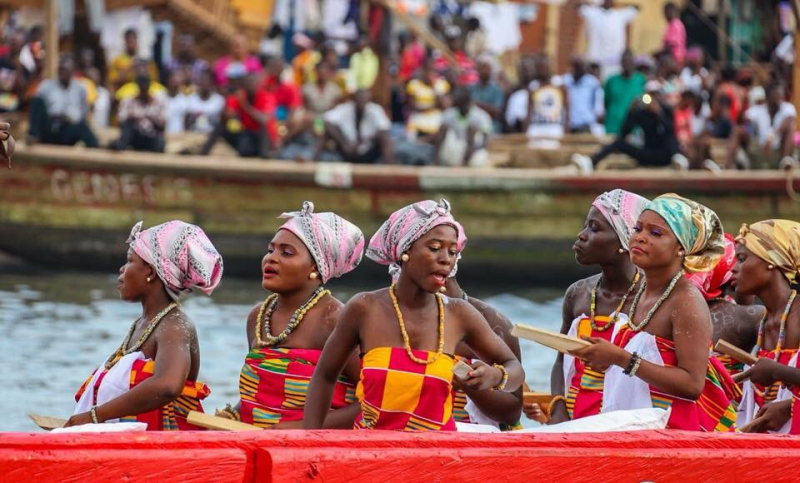
Photo: Twitter Video: Sena Sena -
The Asafotufiam Festival is one of the most famous festivals in Ghana, celebrated every year by the people of Ada in the Dangme East area of the Greater Accra region. Asafotufiam is a war festival that commemorates the wartime heroics of the Ada people from years past. It has become one of the significant events among the Ada people and is celebrated in the first week of August every year.
Activities to earmark the festival include firing of musketeers, drumming and singing of war songs as well as pouring of libation by the chief priests. The most important event within the festival is the procession to Kpomkpompaya, the place which served as a departing point for warriors going to wars as well as landing point for soldiers returning from wars. At this famous ground, some ritual activities like libation pouring, prayers to ancestors and washing of hands take place.
Today, the Asafotufiam remains the single most important traditional festival for the people of Ada and is held in high esteem by the people. Celebration takes place in the first week of August each year.
Where: Accra
When: August
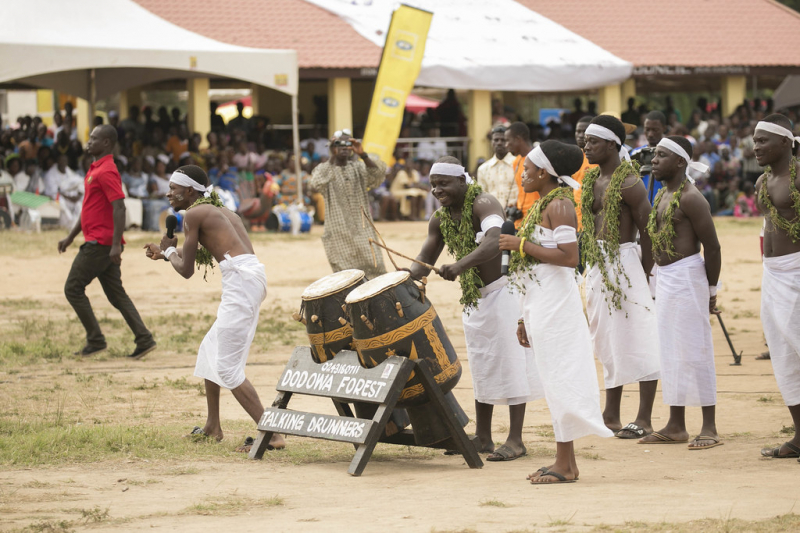
Photo: Flickr 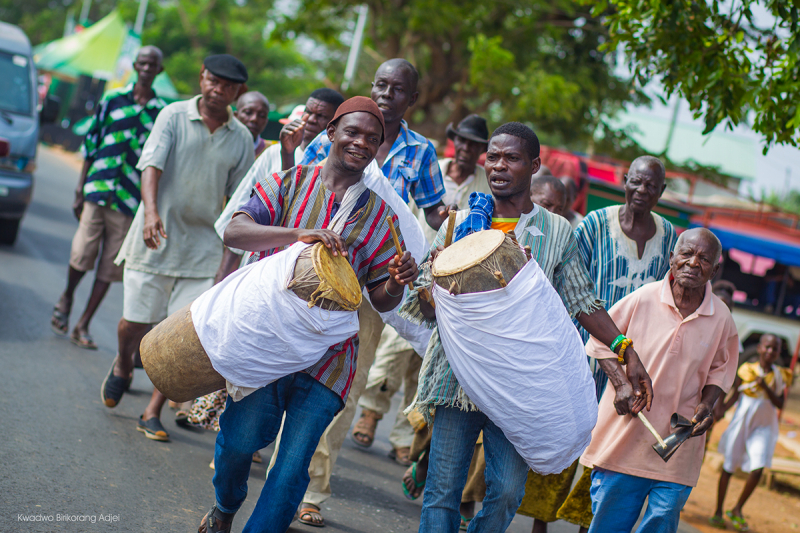
Photo: Behance -
The Fetu Afahye Festival is undoubtedly the most famous festival in Ghana, especially in the Cape Coast Traditional Area of the Central Region. The citizens and chiefs celebrate every September a festival that commemorates when their 77 gods intervened on their behalf to save Cape Coast from a deadly plague.
To remember this deliverance, the durbar and warrior group join in slaughtering livestock and offering communal thanksgiving sacrifices to the deities during this celebration in Ghana. Join in observing women adorned in tribal garments drumming and dancing along to the music while the procession makes its way through the city. Besides men and children dressed in traditional clothing, the chiefs make their presence known by carrying giant umbrellas and scepters as they walk side by side with the tribespeople.
From a social aspect, this is a family reunion time and there is so much to see! From masquerades to boat races, sport games and so much more. Today the celebration may be more modern than it was years ago. Still, this festival seems to bring everyone positively together.
Where: Cape Coast
When: September
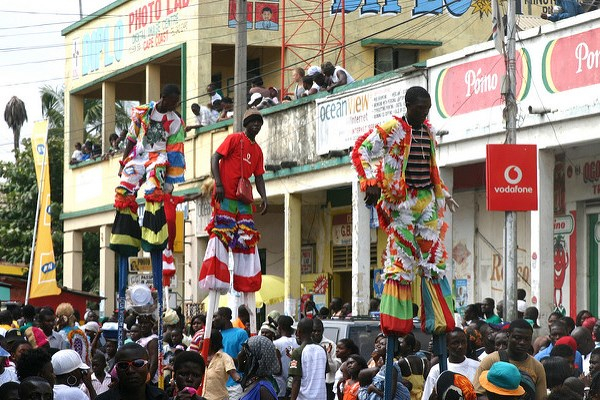
Photo: Visit Ghana Video: TV UCC -
The week-long Hogbetsotso festival commemorates the migration of the Anlo-speaking Ewes, an ethnic group on the eastern coast of Ghana, from the ancient walled city of Notsie in present-day northern Togo to their current home in Ghana. According to legend, the Anlo-Ewes escaped the wicked chief, Ago-Koli, by walking backwards amidst dancing and drumming to war songs. Each year the Anlo-Ewes hold the Hogbetsotso festival, or "Festival of the Exodus," to remember their journey and the brave leaders who guided them.
The Anlo-Ewes begin the observance of Hogbetsotso with a period of peacemaking, during which any outstanding problems are resolved. They perform a ceremony to purify the traditional stool that is an important fixture in Ghanaian culture, and they clean their villages by sweeping and burning garbage. The festival culminates with a grand durbar, or reception, of chiefs and their people, which takes place on the first Saturday of November in Anloga. At the durbar, the chiefs wear bright ceremonial clothing and sit in state, while citizens pay them tribute. The entire festival period is marked by singing, dancing and merry-making. Born of age-old oral legend, the Hogbetsotso festival has been celebrated for generations.
Where: Volta
When: November
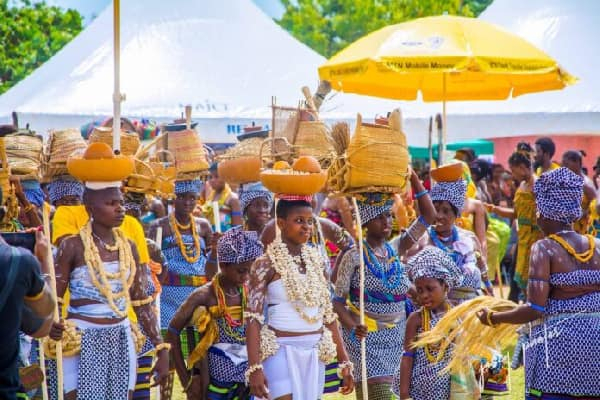
Photo: Flatprofile 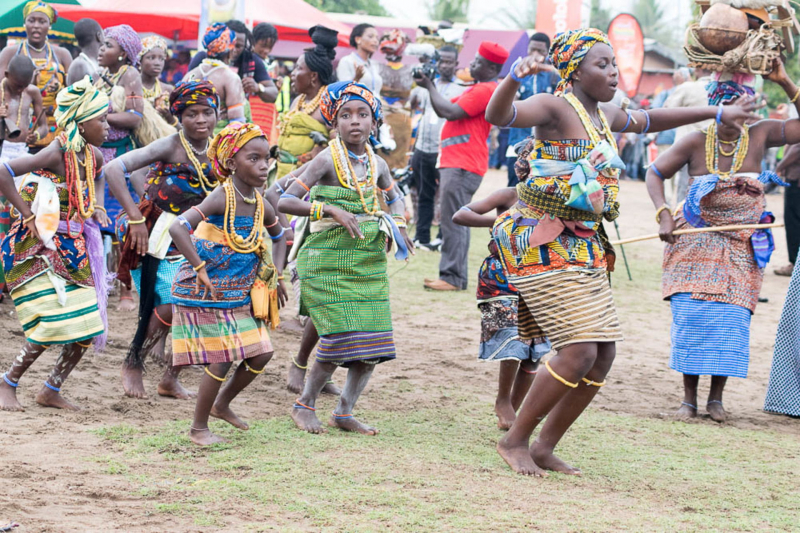
Photo: BreathList -
Akwasidae festival is celebrated to strengthen the bonds between the queens, chiefs, and the citizens of the Ashanti kingdom. During this special cultural festival, Manhyia Palace opens its doors to everyone - to experience the glitz and glamor usually hidden out of sight, away from the public eye.
The rites on this day relate to honoring personal and community ancestors. A gathering called Akom occurs in which drumming, dancing and singing are a normal celebration to honor Abosom (lesser gods in the Akan tradition) and Nsamanfo (spiritually cultivated ancestors). Food offerings include special items such as eto (mashed African yam), garnished with hard-boiled eggs. Every Ashanti celebrates this festival. For those Ashanti who do not observe the festival of Odwira, the Akwasidae fesival is very important to commemorate their ancestors.
During the procession, there is much fanfare, with horns, drums, cultural dancing, and colorfully decorated costumes. The chiefs are presented high above the procession on a palanquin lift, which adds to the spectacle of this grand celebration that takes place every six weeks.Where: Ashanti Kingdom
When: Sunday, once every 6 weeks
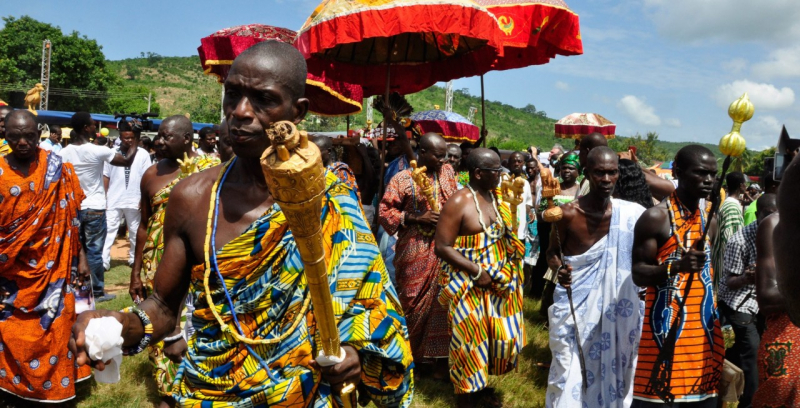
Photo: Travel Inspires 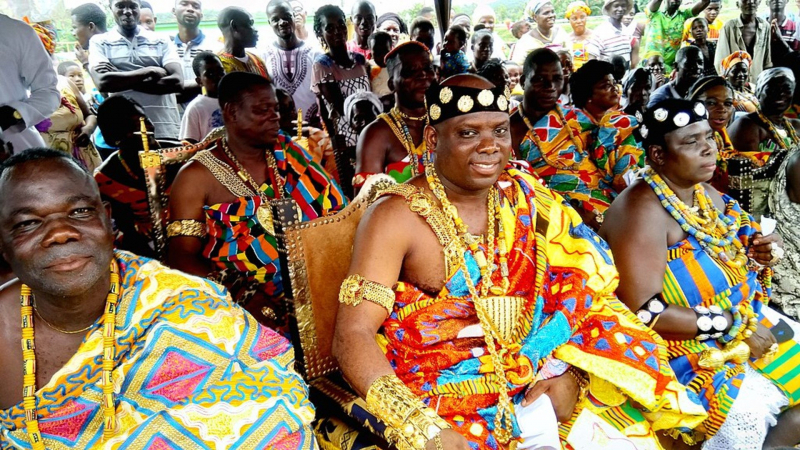
Photo: BreathList -
The Chale Wote Street Art Festival also known as Chale Wote is an alternative platform that brings art, music, dance and performance out into the streets. The festival targets exchanges between scores of local and international artists and patrons by creating and appreciating art together.
Since 2011, Chale Wote has included street painting, graffiti murals, photography, theater, spoken word, interactive art installations, live street performances, extreme sports, film shows, a fashion parade, a music block party, recyclable design workshops and much more. It is the first to be organized in Accra, Ghana and has inspired similar events across the country.
Visitors to Accra should try to include this creative, mind-blowing festival in their itineraries to see Ghana’s most talented performers and design alongside the world’s best creative geniuses.Where: Accra
When: August
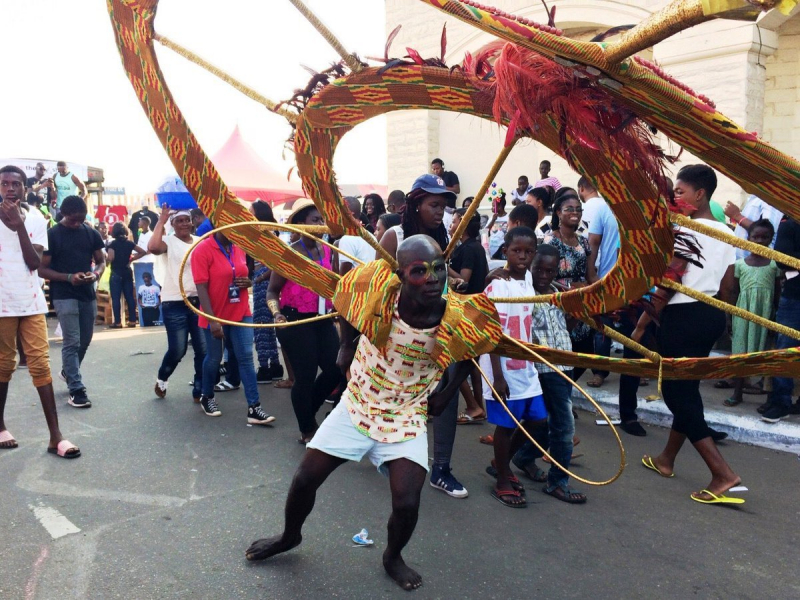
Photo: See Africa Today Video: africanews -
Join the party by visiting Accra in December for Ghana’s major music festival - Sabolai Festival, formerly known as Indie Fuse (stylized as IND!E FUSE). Each December, Accra hosts the most exciting musical event of the year, which celebrates Ghana’s musical talents on a large stage before the international community. Be sure to get your tickets early so as not to miss out on this extraordinary African indie music festival - to watch the most talented artists on both the mainstream and alternative scenes.
The spectacle provides an opportunity for new music to be experienced by fans. Both established artists and up-and-comers from the contemporary, fusion, and traditional music scenes get together to perform at this gathering.
A 2-day event, it features heavy hitters from Ghana and abroad in an exciting live music concert. It is said to be "the largest indie music showcase in West Africa and highlights the best in hip hop, AfroBeat, traditional fusion, soul, electronic, brass and house music.."Where: Accra
When: December
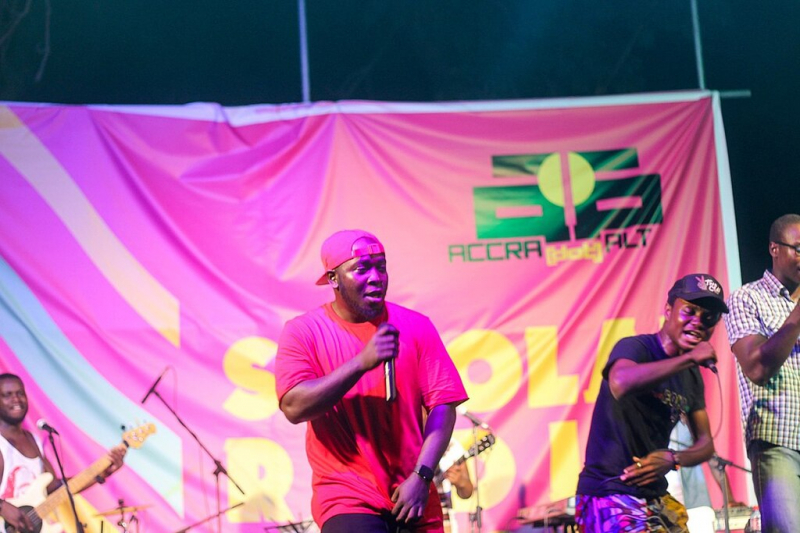
Photo: trip101.com Video: CGTN Africa -
Each August, Accra hosts the Nkabom Literary Festival, which draws local and international poets and novelists. This is a time to reflect on the impact of literature on the world as a whole. The festival witnesses the greatest migration of local artists from in and around Ghana coming together to showcase their art and share an idea or just get a new perspective about things.
During this festival, there are illustrators, painters, and theater performers who participate in lectures, readings, and exhibits. Musicians and DJs add their talent by taking the stage during this community-conscious event to promote the positive effects and essential skills of reading. The festival transforms into a platform where several contents from multiple sources pour in to create a literary festival. That magnifies the reach of local literature to the international mass.Where: Accra
When: August
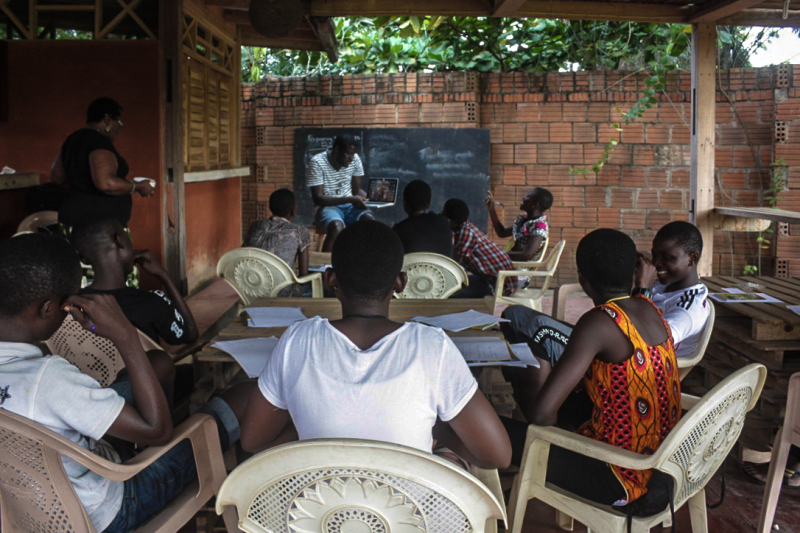
Photo: Culture Trip Video: PEACE CULTURE MUSIC -
Every September, Accra puts on a family-friendly affair where foodies from all over the world come to indulge in the amazing culinary innovations presented at the Accra Food Festival. Colorful tents house the most mouth-watering, delicious cuisine at prices that are within reach of all attendees.
Festival-goers can expect to savor the best of what Ghana has to offer in both traditional food and non-traditional, including drink options. International guests can expect to experience culinary delights that have been carefully prepared, in a friendly and warm environment put on by extremely generous and hospitable locals.
Where: Accra
When: September
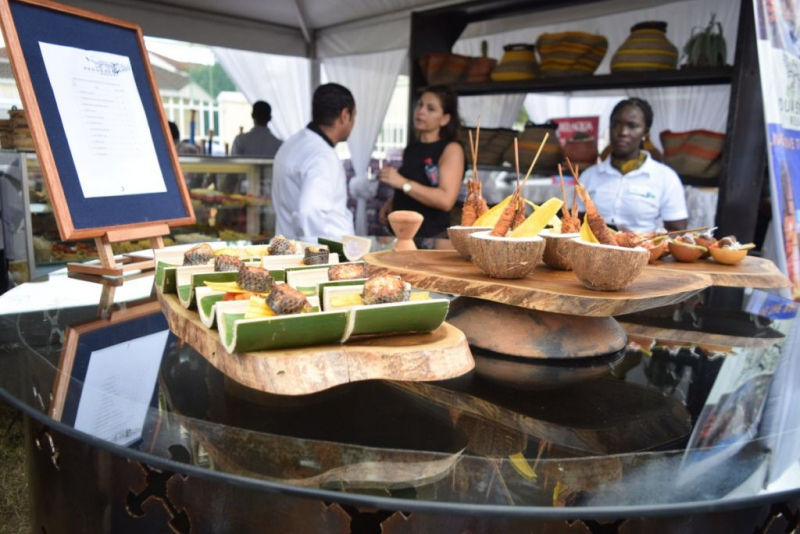
Photo: Country Travel and Tours Video: CGTN Africa -
The term Panafest is an abbreviation for ‘Pan-African Festival of Art and Culture’. The festival showcases different aspects of traditional and historical legacies left behind in the form of art and culture. The celebration began in the 1980s by the late Efua Sutherland to attract the African diaspora all around the globe.
The festival greatly focuses on the several cultures and traditions of the several distinct tribes of Africa and helps revive these traditions to bring back the long-lost treasures of Africa. The festival is aimed to bring back African people who were part of the lost tribes. In order to resuscitate the lost traditions and customs of Africa.
Where: Cape Coast
When: July
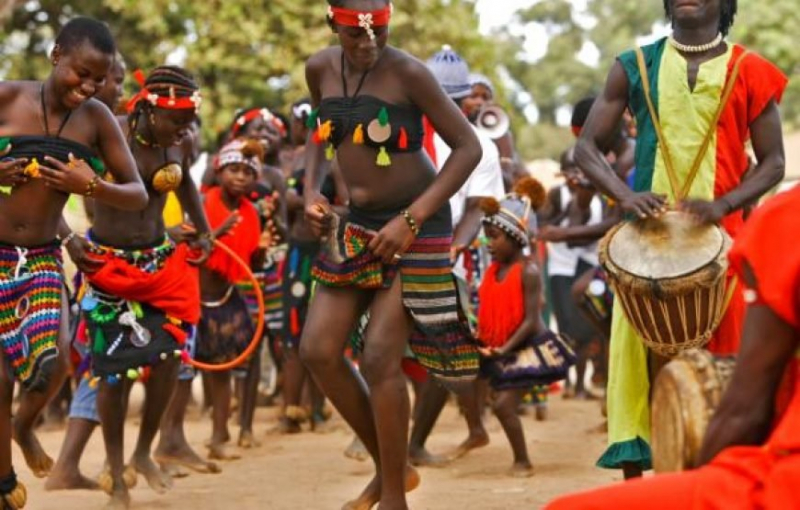
Photo: Continent Tours Video: Visit Ghana














